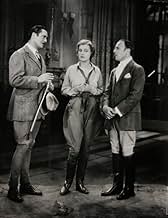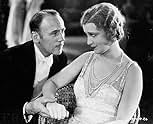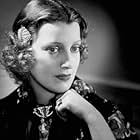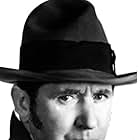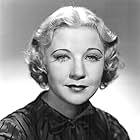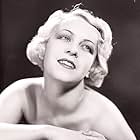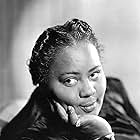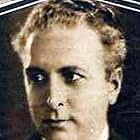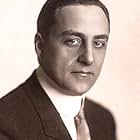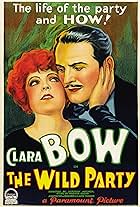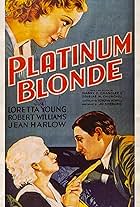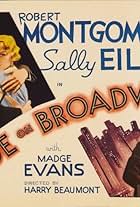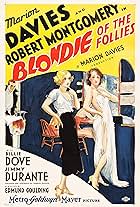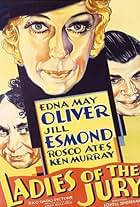"Don't Bet On Women" (aka "All Women Are Bad") (1931) is a somewhat sophisticated comic pre-code starring Edmund Lowe, Jeanette MacDonald, Roland Young, Una Merkel, and J. M. Kerrigan. Playing much like a play on film - and it is based on a play that was a flop - its 70 minutes speed along breezily and is mostly a smile all the way through, not necessarily a laugh-fest, although the first twenty minutes or so will be eye-opening for crowds under 35. Why? Because the men, Lowe, Young, and Kerrigan all are speaking about how either women are totally bad (after all, the play was called "All Women Are Bad") and shouldn't be thought of as marriable, or how women are under the total control of men and should be, and, according to Roland Young, they are. Just look at his wife, Jeanette MacDonald. The plot is about as simple minded as can be, and it was so even from when the play was first performed in the nineteen teens. Nevertheless, watching Edmund Lowe ooze his way through the seemingly sophisticated lines is actually a lot of fun. His sidekick in the piece, Irishman J. M. Kerrigan, is simply a foil, for he falls instantly in love with scatter-brained Una Merkel and she with him, disproving all his cohort Lowe has spoken about. Merkel throughout reminds the viewer of Gracie Allen, delivering such lines as "I think scenery adds so much to a view!" MacDonald is wonderful to watch, though two things are so very apparent: (1) she doesn't sing a note in this film!, although she does tinkle a few notes on a piano, and (2) a few of her line readings almost sound rote delivered and not very spontaneous, a film value in early sound films (or any since, too) of slight inexperience.
I enjoyed this film a lot, but then I'm a huge fan of Edmund Lowe in just about everything he made. I also generally enjoy Roland Young a lot. Jeanette MacDonald I think was one of the most beautiful women of all time in film, with eyes that go on and on and on. Una Merkel is a favorite of both my wife and I. I won't say that any kind of majority of modern viewers will enjoy this film much because its mores (those of its time) and ideas about men and their rôles in society and likewise women will be viewed as old-fashioned and wrong. Still, I enjoyed the film quite a bit, and I'd recommend it to one and all, especially those who enjoy the pre-codes. This has plenty of pre-code material in it to satisfy those looking for it. Oh, and Louise Beavers makes a very non PC entrance and exit as part of the context. Her black context will be viewed as quite stereotypical of that time, but racist today - and it certainly is!

